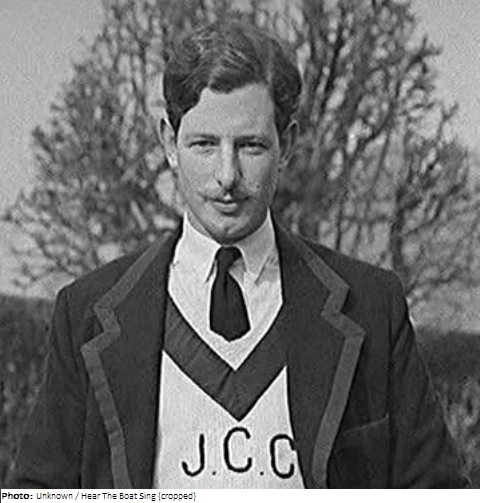Conrad Cherry

Biographical information
| Roles | Competed in Olympic Games |
|---|---|
| Sex | Male |
| Full name | John Conrad Hazlehurst•Cherry |
| Used name | Conrad•Cherry |
| Born | 7 September 1914 in Paddington, England (GBR) |
| Died | 1 February 1943 in off the coast of Libya (UNK) |
| NOC |  Great Britain Great Britain |
Biography
Conrad Cherry was educated at Westminster School, where he was Head of the River in 1932, and upon going to Brasenose College, Oxford, became Captain of Boats. He was also president of the Oxford University Boat Cub in 1937 and 1938. He was a three-time Blue (1936-38) and in 1937 played a major part in the revival of Oxford’s fortunes when they halted a run of 13 consecutive Cambridge wins, only after being persuaded to stay on another year at University. His future brother-in-law Ronnie Rowe was in the same boat. Cherry also coached the losing 1939 Oxford crew.
At Henley, Cherry, who had joined the Leander Club in 1936, was a member of their eights that finished second to the Ruder Club, Zürich in the Grand Challenge Cup that year. He won the 1937 and 1938 Stewards’ Challenge, however, with the Leander coxless fours. He was the Leander captain in 1938 and 1939.
At the outbreak of World War II, Cherry took a commission in the Royal Naval Volunteer Reserve (RNVR) and served as a lieutenant on the minelayer HMS Welshman. The ship had the role of transporting food and supplies to the island of Malta during the war, and her exploits featured in the 1953 movie Malta Story starring Alec Guinness and Jack Hawkins. Cherry was killed when the Welshman was torpedoed and sunk off the coast of Tobruk.
Of all the sporting contests Cherry took part in, perhaps the most unusual was in 1938 when Brasenose College represented England in a Trans-Atlantic spelling bee contest against the United States, represented by Harvard and Radcliffe College. The contest was organised by the BBC, and the USA won by four points.
Results
| Games | Discipline (Sport) / Event | NOC / Team | Pos | Medal | As | |
|---|---|---|---|---|---|---|
| 1936 Summer Olympics | Rowing |  GBR GBR |
Conrad Cherry | |||
| Eights, Men (Olympic) | Great Britain | 4 |
Special Notes
- Listed in Olympians Who Competed in the Boat Race (1936 Oxford (lost), 1937 Oxford (won), 1938 Oxford (won))
- Listed in Olympians Who Were Killed or Missing in Action or Died as a Result of War (†1 February 1943. Killed in action in World War II.)